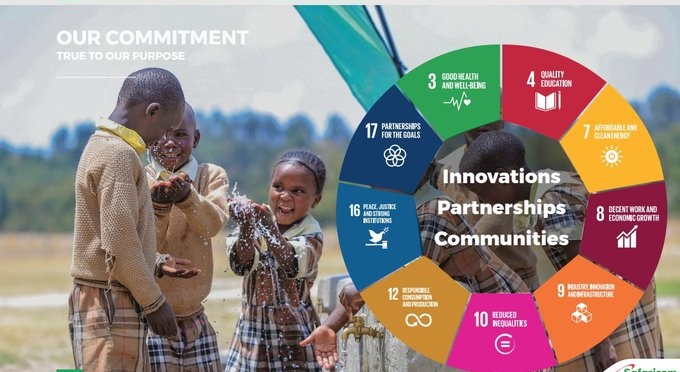Safaricom says climate change and inequality are the emerging challenges facing the world today, and businesses need to embrace sustainable practices.
“Climate change and inequality are the existential challenges facing the world today, and businesses need to conduct their activities in a strategy that is mindful of these challenges,” said Sanda Ojiambo, Head of Sustainable Business and Social Impact at Safaricom.
“This entails doing more than the conventional corporate social investment (CSI), and our approach is to align our businesses to the 17 UN Sustainable Development Goals.”
On the other hand, Siddharth Chatterjee, United Nations Development Program (UNDP) Resident Representative in Kenya, said the government should partner with the private sector to scale up inclusive investments and promote green growth.
“The private sector in Kenya can tap into investment opportunities that sustainable development goals provide, especially in areas like healthcare, education, affordable housing, and food security,” said Chatterjee.
The two spoke at a media forum in Nairobi on the role of businesses in promoting UN 2030 goals ahead of Safaricom’s launch of its 8th annual sustainability Report on Thursday. The report is themed ‘Towards Reducing Inequalities’.
In the report, Safaricom injected KSh601 billion into the Kenyan economy in the year ended March 2019. The company says the number of jobs created directly or indirectly now stands at 978,633.
“Over 187,756 direct and indirect jobs were created during the year, and the wider effect on the economy increased to over 978633 jobs,” said the abridged version of the report.
“The true value assessment shows that the value created for Kenyan society in March 2019 was Sh601 billion, 10.7 per cent from the contribution made in the same period ending 2018…it was 9.6 times greater than financial profit made in the year,” said Sanda.
This was attributed to the economic value, which grew to KSh317.61 billion from KSh288.59 billion in 2017.
Shareholders’ financial value in earnings rose to KSh62.49 billion from KSh55.28 billion; social externalities went up by more than KSh200 billion through M-Pesa, jobs and social investments, and the environment externalities rose to KSh412.3 million from KSh258.5 million attributed to a 3.8 per cent increase in carbon emissions.
Safaricom has integrated 9 of the 17 Sustainable Development Goals (SDGs) into its core business strategy, including goals on Health (SDG3), Education (SDG4), Clean Energy (SDG7), Decent Work and Economic Growth (SDG8) and others.
Three of the United Nations’ sustainable development goals deal expressly with inequality: Goal 1, eradicating extreme poverty; Goal 5, gender equality; and Goal 10, reducing all forms of inequality.
“We are convinced that the long-term sustainability of our business depends on adopting practices that promote environmental health, gender parity, diversity, and innovations,” said Ojiambo. “…As a business, we know we can do that (continuously add value to the consumer) drive profitability and also add value to the customer.”




